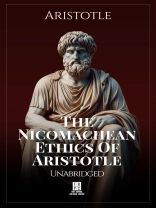The Greek philosopher and polymath Aristotle coined the word 'ethics’ to describe the field of study developed by his predecessors Plato and Socrates which examined how human beings should best live their lives. In their writings, these men sought to describe aspirational goals and societal mores that human civilization should value and encourage, with an emphasis on virtue. Men, Aristotle argued, should always attempt to do the right thing in any given situation.
Aristotle’s best-known book on this subject is his 'Nicomachean Ethics, ’ a ten-book collection on the discipline of human virtue itself. In it, Aristotle asserts that being ethical is not simply knowing the proper way to behave in a society. To be ethical, one must actually strive to do the right thing every day, in every situation.
This book was hugely influential on the English Middle Ages and became a foundational document for medieval theology. Aristotle’s teachings would form the basis for modern philosophy, law and theology and his books and theories are studied, debated and discussed to this day.
This publication of 'The Nichomachean Ethics’ is presented with an introduction and footnotes by renowned British philosopher J.A. Smith.
O autorze
Aristotle (384-322BC) was a Greek philosopher and polymath whose writings on various subjects – including economics, the natural sciences, philosophy, language, politics, psychology, and the arts – influenced Western culture in countless ways, from the Middle Ages to the Renaissance and beyond. Few writers’ works have had such a profound and lasting effect and his admirers include everyone from Thomas Aquinas (who dubbed him the 'First Teacher’) to Dante Alighieri (who called Aristotle 'the master of those who know’). A student of Plato, Aristotle attended Plato’s Academy for twenty years before being asked by Philip II of Macedon to tutor his son, who would go on to become Alexander the Great. After Aristotle established a library at the Lyceum, he began writing his treatises on papyrus scrolls. Most of his works would be lost, but a third of his books survive, including his studies of logic, physics, the arts, rhetoric, ethics, and philosophy. Aristotle is now considered one of the great thinkers of the Classical period and his books and theories are studied, debated and discussed to this day.












